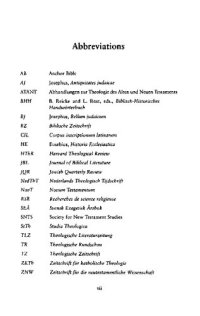
Ebook: Re-examining Paul’s Letters: The History of the Pauline Correspondence
- Year: 2001
- Publisher: Bloomsbury Academic
- pdf
Before his untimely death in 1987, renowned New Testament scholar Bo Reicke was working on a manuscript in which he had solved the riddle of the Pastorals and the "deutero-Paulines" by fitting them seamlessly into Paul’s work as known from Acts and from the acknowledged Pauline letters. In Re-examining Paul’s Letters, Reicke concludes that the generally accepted theory that the deutero-Paulines were written after Paul’s death presents too many inconsistencies when viewed historically.
Reicke argues that the emphases of the deutero-Paulines did not represent known problems and theological concerns of the period 70–100 C.E. as presented in the sub-apostolic literature. He also demonstrates that current theories in New Testament scholarship do not explain the wealth of details found in either the "undisputed" or deutero-Pauline letters. Details, such as names of colleagues and Christian acquaintances, instructions of Paul to these known characters which divulge movements and itineraries of Paul in harmony with his other letters, and a host of greetings, would simply be nonsense to people of a later generation, but make perfectly good sense if written by Paul or one of his associates. Reicke develops the notion of a Pauline school that takes full account of the diversity, versatility, and adaptability of Paul’s colleagues that produced a variety of styles and sub-genres. Unlike many previous attempts to describe the history of the Pauline correspondence, this book weaves a whole new tapestry of Paul’s priorities for the gospel.
Reicke argues that the emphases of the deutero-Paulines did not represent known problems and theological concerns of the period 70–100 C.E. as presented in the sub-apostolic literature. He also demonstrates that current theories in New Testament scholarship do not explain the wealth of details found in either the "undisputed" or deutero-Pauline letters. Details, such as names of colleagues and Christian acquaintances, instructions of Paul to these known characters which divulge movements and itineraries of Paul in harmony with his other letters, and a host of greetings, would simply be nonsense to people of a later generation, but make perfectly good sense if written by Paul or one of his associates. Reicke develops the notion of a Pauline school that takes full account of the diversity, versatility, and adaptability of Paul’s colleagues that produced a variety of styles and sub-genres. Unlike many previous attempts to describe the history of the Pauline correspondence, this book weaves a whole new tapestry of Paul’s priorities for the gospel.
Download the book Re-examining Paul’s Letters: The History of the Pauline Correspondence for free or read online
Continue reading on any device:

Last viewed books
Related books
{related-news}
Comments (0)